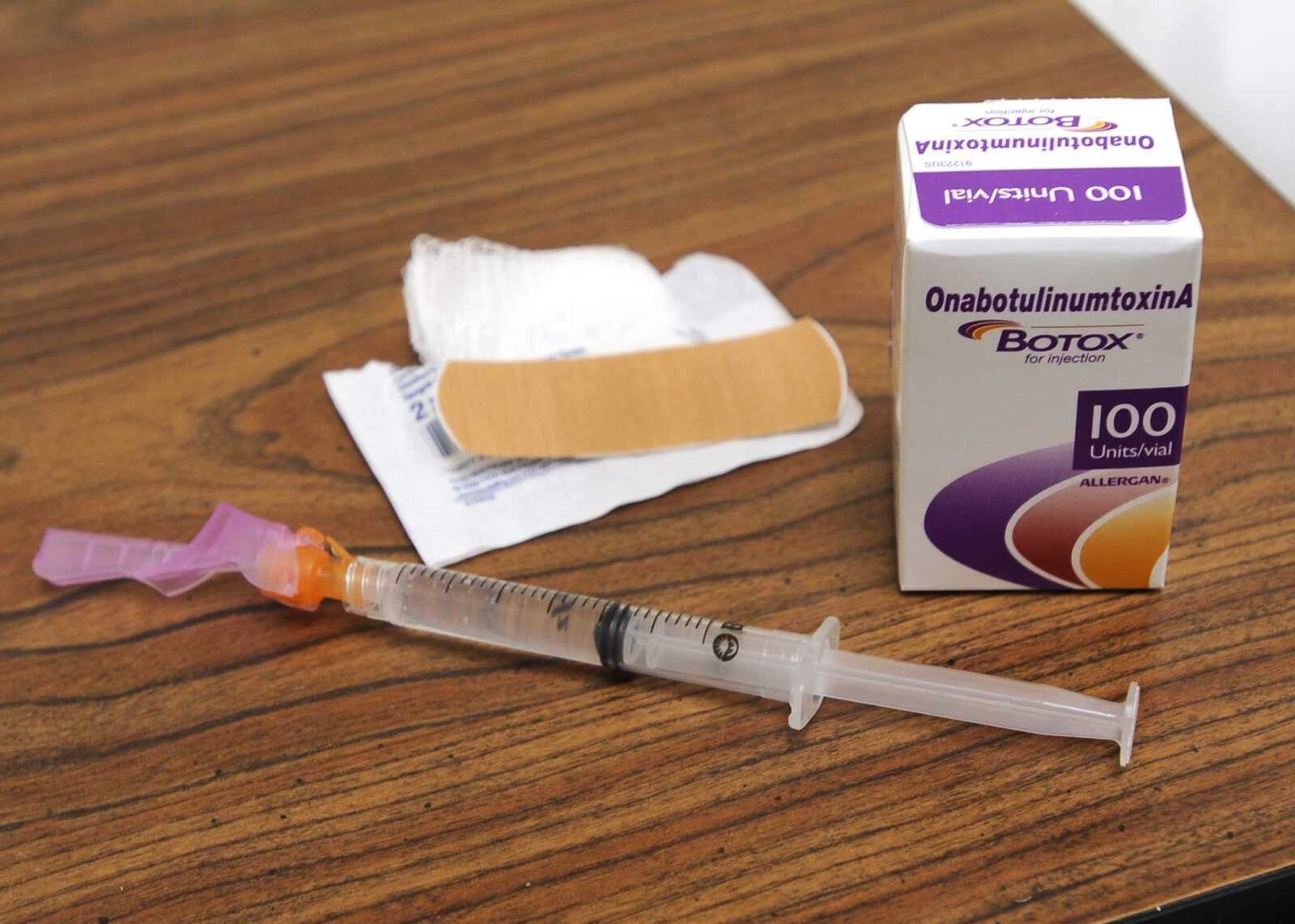A new use for Botox: Treating migraines
Botox isn't just for wrinkle removal -- it can also treat chronic migraine headaches. While the treatment itself is nothing new, the FDA approval granted last fall is a step forward. "We've known for some period of time that relaxing the head and neck muscles can relieve migraine headaches or reduce the severity quite a bit," said Dr. Matthew Karshner of Southeast Physical Medicine and Physical Rehabilitation...
Editor's note: This article originally appeared in Flourish, a quarterly magazine for women published by the Southeast Missourian. To receive Flourish at home, call 335-6611 or 800-879-1210.
Botox isn't just for wrinkle removal -- it can also treat chronic migraine headaches. While the treatment itself is nothing new, the FDA approval granted last fall is a step forward.
"We've known for some period of time that relaxing the head and neck muscles can relieve migraine headaches or reduce the severity quite a bit," said Dr. Matthew Karshner of Southeast Physical Medicine and Physical Rehabilitation.
Botox helps ease the muscle tension or spasms in the neck and head that may cause migraines.
"It's meant to prevent the onset of a migraine and decrease the severity if it occurs," Karshner said.
According to Dr. Robert Gardner, a neurologist at Saint Francis Medical Center, "The major benefit of the FDA approval is that it is now much easier to obtain insurance approval for this treatment."
In most cases, Botox candidates must have migraines more than 15 days per month, more than four hours per day, and have tried other medications with no relief.
"The patients I've injected have been generally happy with their improvement," Gardner said.
The patient remains conscious throughout the Botox treatment, remaining seated part of the time and lying down part of the time, says Karshner. The doctor makes injections to seven designated sites on the forehead, sides of the head and neck, and the back of the head, each corresponding to a different muscle group.
"There will be some level of discomfort, but it's not excruciating," Karshner said. "The needle is very thin, it's not long, and the injections are all relatively superficial -- less than a quarter of an inch."
Each session lasts only about 20 minutes, and injections are needed every three to four months, Karshner said.
Karshner said his patients have had significant reduction in the occurrence and severity of migraines, reduced use of medication and little to no side effects.
Is it a migraine?
Dr. Robert Gardner explains how to identify the most common headache types.
Migraine
One-sided, pounding headache; builds from moderate to severe levels of pain; sensitivity to light and noise; nausea and/or vomiting; activity limited due to pain. May be preceded by an "aura," or a visual disturbance such as flashing lights or loss of vision.
Tension
Mild to moderate pain at the base of the neck; no nausea or sensitivity to light and sounds; generally not disabling. Treated easily with over-the-counter medications.
Sinus
Headache accompanied by an active sinus infection, drainage and possibly fever.
Cluster
Sharp, severe, unilateral pain; associated with nasal congestion, tearing and redness of the eye; pain lasts a few minutes but recurs multiple times throughout the day; occur most often at night; occur clusters or cycles, like at certain types of the year. More common in men.
Chronic daily headache
Headache that has evolved from a less frequent headache pattern, most commonly migraine but also tension headaches. Can develop from overuse of analgesic medications. Treated with preventive medications similar to those used for migraines, including Botox.
Connect with the Southeast Missourian Newsroom:
For corrections to this story or other insights for the editor, click here. To submit a letter to the editor, click here. To learn about the Southeast Missourian’s AI Policy, click here.










